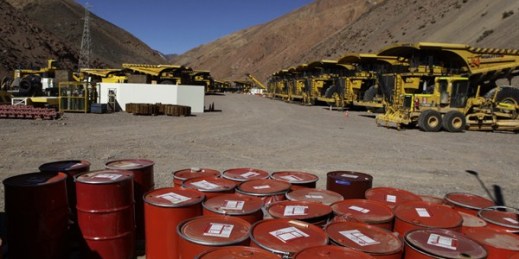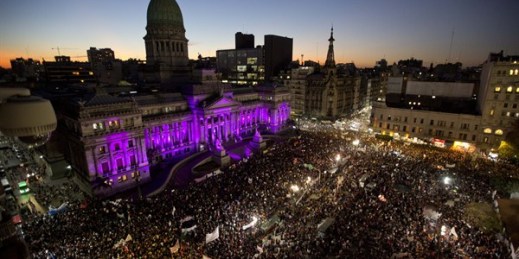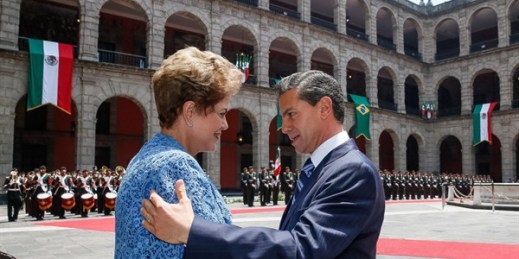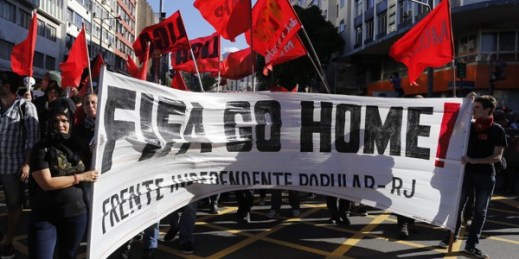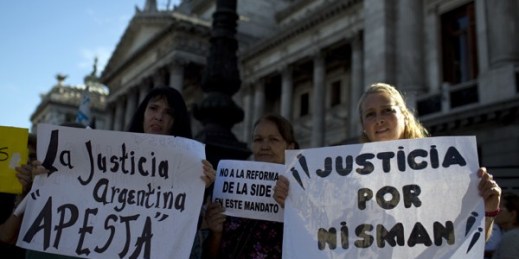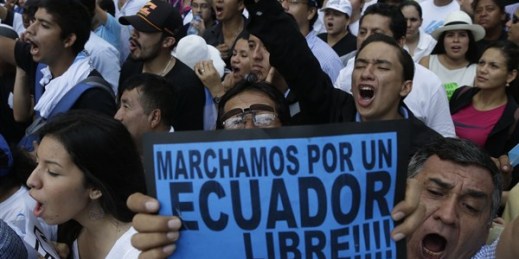
Unlike his predecessors, Ecuador’s president, Rafael Correa, has enjoyed consistently high approval ratings since coming into office in 2007. And while support for some other regional leaders, hit hard by economic slowdowns and corruption scandals, are nearing rock-bottom levels, Correa’s rule has also been relatively free of political turbulence. But over the past several weeks, that has changed. Growing protests reveal that many Ecuadoreans are increasingly disaffected and no longer afraid to take to the streets and openly defy a self-assured president intent on carrying out his so-called citizens’ revolution. The biggest protests came late last week in the country’s […]

